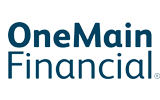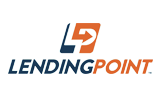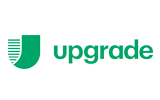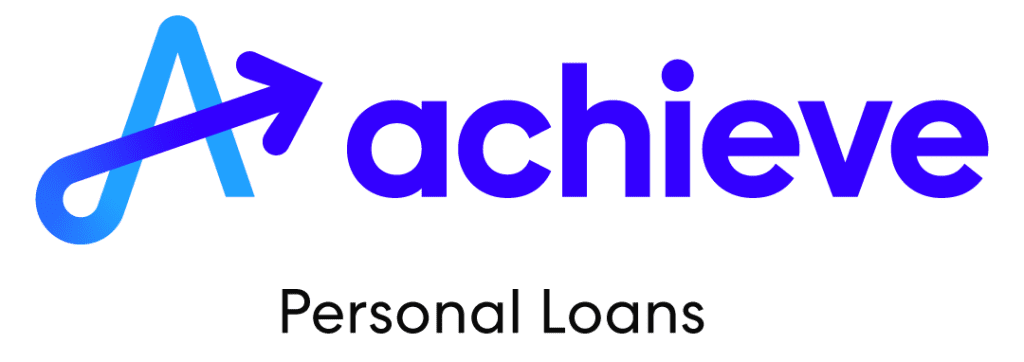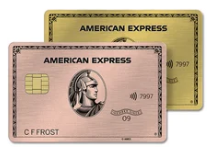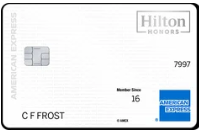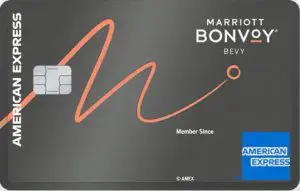Taking out a personal loan is a great way to consolidate your debt down to one payment.
It is no surprise that they are still offering personal loans, either. In fact, an increase in personal loan balances shows this type of loan offer is sticking around.
The biggest problem with this is now finding the right loan for you. Every bank is different and every loan they offer is also different. From interest rates to loan terms, flexibility to other fees, there is a lot to consider when looking for your loan.
Lender | APR | Min. Score | Max Amount | |
|---|---|---|---|---|
OneMain Financial | 18.00% – 35.99%
| No Minimum
| $1,500 -$20,000
| |
Lending Point | 7.99% – 35.99%
| 580
| $2,000 – $36,500
| |
Achieve | 8.99% – 35.99%
| 620
| $5,000 -$50,000
| |
Upgrade | 8.49% – 35.99% | 600
|
$1,000 – $50,000
| |
Happy Money
| 11.52% – 24.81%
|
640
|
$5,000 – $40,000
| |
LendingClub
|
9.57% – 35.99%
|
600
|
$1,000 – $40,000
| |
Universal Credit
|
11.69% – 35.99%
|
580
|
$1,000 – $50,000
|
With this in mind, we have put together this list to help you figure out what you are looking for and who to turn to for your perfect loan to consolidate your debt.
Here are The Smart Investor Select’s picks for the best debt consolidation loans of 2024:
OneMain Financial
APR
Loan Term
Minimum Score
Loan Amount
- Overview
- Pros & Cons
- FAQ
OneMain Financial stands out among online personal loan providers with its extensive network of over 1,500 physical branches, offering convenience to borrowers who may encounter challenges obtaining financing through traditional banks.
Ideal for individuals with poor credit, OneMain Financial provides a viable solution for those facing difficulties securing funding through conventional channels. While the interest rates are higher compared to average rates, they are considerably more favorable than those offered by payday lenders.
Moreover, the quick turnaround time makes it an appealing option for individuals experiencing urgent financial needs. However, if you possess good to excellent credit, exploring alternative providers might be more advantageous.
- Application Options
- Less than perfect Credit
- Joint Applicants
- No Prepayment Penalty
- Many Payment Options
- Higher interest rates
- Fees
- Not Available in All States
- Lack of Rate Discounts
What is the minimum credit score required to qualify for a OneMain Financial loan?
OneMain Financial doesn't have a strict minimum credit score requirement. They evaluate various factors, including your credit history, income, and ability to repay the loan, rather than solely relying on your credit score.
Does OneMain Financial offer discounts or incentives for borrowers?
OneMain Financial does not typically offer rate discounts or incentives for borrowers
Can I apply for a OneMain Financial loan with a co-applicant?
Yes, you can apply for a OneMain Financial loan with a co-applicant. Having a co-applicant can improve your chances of approval and may result in more favorable loan terms.
Are there any restrictions on how I can use the loan funds?
While OneMain Financial allows for various uses of loan funds, including debt consolidation, home improvement, and major life events, there are restrictions on prohibited uses. These include activities like gambling, illegal ventures, and starting a business.
How do I contact OneMain Financial customer service?
You can reach OneMain Financial customer service by phone at 800-525-0451 for loan application inquiries and 800-290-7002 for existing loan inquiries. They also offer support via email at [email protected].
Lending Point
APR
Loan Term
Minimum Score
Loan Amount
- Overview
- Pros & Cons
- FAQ
LendingPoint is a reputable lending institution specializing in personal loans tailored to borrowers with fair to average credit with minimum score of 580 .
Offering loan amounts ranging from $2,000 – $36,500 , LendingPoint provides accessible financing solutions for various purposes, including debt consolidation, home improvement, and unexpected expenses. One of the standout features of LendingPoint is its prequalification process, allowing prospective borrowers to check their loan offers without impacting their credit score.
With a focus on providing quick funding, LendingPoint boasts a streamlined application process, with potential same-day approval and next-day funding options available. Additionally, the lender offers a mobile app for convenient loan management, allowing borrowers to track payments and monitor their credit scores effortlessly.
While LendingPoint personal loans offer flexibility and accessibility, borrowers should be aware of potential origination fees, which can range up to 10% of the loan amount.
- Application Options
- Less than perfect Credit
- Free Credit Score Access
- No Prepayment Penalty
- Many Payment Options
- Higher interest rates
- Fees
- Not Available in All States
- Reports payments to only two credit bureaus:
- No joint, co-signed, or secured loans
Are there any fees associated with LendingPoint personal loans?
LendingPoint may charge origination fees, which can range up to 10% of the loan amount. Additionally, borrowers should be aware of potential late fees for missed payments.
How quickly can I receive funding if my loan is approved?
LendingPoint aims to provide fast funding, with potential same-day approval and next-day funding options available. However, the exact timing of funding may vary depending on factors such as the time of approval and your bank's processing times.
Can I check my loan offers without impacting my credit score?
Yes, LendingPoint offers a prequalification process that allows you to check your loan offers without affecting your credit score. This enables you to explore your borrowing options and make informed decisions before formally applying for a loan.
Do I need collateral to secure a LendingPoint personal loan?
No, LendingPoint offers unsecured personal loans, meaning collateral is not required to qualify for a loan. This makes LendingPoint loans accessible to a wider range of borrowers who may not have assets to use as collateral.
Can I refinance an existing loan with LendingPoint?
Yes, LendingPoint allows borrowers to use a personal loan to refinance existing debt, whether it's from LendingPoint or another lender. Refinancing can be a beneficial option for borrowers seeking to lower their interest rates or consolidate debt.
How can I contact LendingPoint customer service?
You can reach LendingPoint customer service by phone at 888-969-0959 during their operating hours, which are Monday to Friday from 8 a.m. to 12 a.m. ET, Saturdays from 10 a.m. to 9 p.m. ET, and Sundays from 10 a.m. to 4 p.m. ET. Additionally, you can email customer service at [email protected] for inquiries or assistance regarding your personal loan.
Achieve
APR
Loan Term
Minimum Score
Loan Amount
- Overview
- Pros & Cons
- FAQ
Achieve Personal Loans, formerly known as FreedomPlus, offer borrowers with fair to good credit scores an accessible option for consolidating debt or financing major expenses.
With a minimum credit score requirement of 620, Achieve provides loans ranging from $5,000 to $50,000, accommodating various financial needs. One of Achieve's standout features is its multiple rate discounts, including joint loan discounts, retirement savings discounts, and direct pay discounts, which can significantly reduce borrowers' interest rates.
However, it's important to note that Achieve charges origination fees and lacks a mobile app for loan management
- Joint Borrowers
- Quick Turnaround Times
- Customer Service
- Discounts
- Higher Minimum Amount
- Late payment fees of $15 or 5%
- Origination Fee
- Not Available in All States
How quickly can I receive funding after approval?
After approval, funds from Achieve Personal Loans are typically disbursed within three business days, providing borrowers with swift access to the requested financing to address their financial needs.
What are the eligibility requirements for an Achieve Personal Loan?
To qualify for an Achieve Personal Loan, you must have a minimum credit score of 620, a maximum debt-to-income ratio of 45%, and a minimum credit history of three years with two accounts. Additionally, you must not be actively delinquent on debt or have had a bankruptcy in the last 24 months.
Are there any fees associated with Achieve Personal Loans?
Yes, Achieve charges an origination fee ranging from 1.99% to 6.99% of the total loan amount, depending on the borrower's profile and loan terms. Additionally, late payment fees may apply for missed payments.
Are co-signers or co-applicants allowed for Achieve Personal Loans?
Yes, co-borrowers are permitted for Achieve Personal Loans, and they can help improve approval odds, especially for borrowers with lower credit scores.
Is Achieve Personal Loan available in all states?
No, Achieve Personal Loans are not available in all states. Borrowers should check the availability of loans in their state before applying.
Upgrade
APR
Loan Term
Minimum Score
Loan Amount
- Overview
- Pros & Cons
- FAQ
Upgrade offers personal loans tailored to various financial needs, including debt consolidation, home improvements, and large purchases. Founded in 2017 and headquartered in San Francisco, the company operates online, providing convenient access to financial products without physical branches. With loan amounts ranging from $1,000 to $50,000, Upgrade aims to cater to a wide range of borrowers.
Prospective borrowers can apply for a loan online, with a streamlined process that involves filling out personal information and undergoing a soft credit check. Upon approval, funds are typically disbursed within one business day, offering quick access to financing. Upgrade's loans come with fixed-rate options, providing stability in monthly payments throughout the loan term.
However, there are some drawbacks to consider. Upgrade imposes an origination fee on all loans, which can impact the total amount received by borrowers. Additionally, the APRs offered by Upgrade can still be relatively high, especially for individuals with lower credit scores.
- Multiple Rate Discounts
- Joint Applications Allowed
- Simple Application Process
- Quick Turnaround Times
- No Prepayment Penalty
- Higher low end rates for those with excellent credit
- Origination Fee
- Not Available in All States
- No Co-signers Accepted
How do I apply for an Upgrade personal loan?
To apply for an Upgrade personal loan, you can visit their website and fill out the online application. You'll need to provide basic personal information such as your name, address, income details, and employment information. After completing the application, Upgrade will conduct a soft credit check to determine your eligibility
What documents do I need to provide for the application?
During the application process, you may need to provide documents such as pay stubs, W-2s, tax returns, or bank statements to verify your income and financial information. The specific documentation required may vary depending on your individual circumstances.
Does Upgrade offer prequalification?
Yes, Upgrade offers prequalification, which allows you to check your potential loan offers without affecting your credit score. This can be a helpful tool to gauge your eligibility and compare loan options before submitting a formal application.
How quickly can I receive funds after approval?
Once your Upgrade personal loan is approved, funds are typically disbursed within one business day. However, the actual timing may depend on your bank's processing times and how quickly you provide any necessary documentation.
What is the minimum credit score required to qualify for an Upgrade loan?
While Upgrade does not disclose a specific minimum credit score requirement, they typically consider borrowers with a credit score of at least 600. However, meeting the minimum credit score alone does not guarantee approval, as Upgrade evaluates various factors such as credit history and income.
Happy Money
APR
Loan Term
Minimum Score
Loan Amount
- Overview
- Pros & Cons
- FAQ
Happy Money, formerly known as Payoff, specializing in helping individuals manage and pay off credit card debt. With a minimum credit score requirement of 640, the platform facilitates a seamless application process, utilizing a soft credit pull to provide pre-qualification options without impacting credit scores.
Borrowers can access loans ranging from $5,000 – $40,000 , aiming to consolidate various high-interest credit card balances into a single, manageable loan with potentially lower APRs. Happy Money's personal loans include the option for direct payments to creditors, allowing for seamless consolidation.
However, funding time for loans typically ranges from three to seven business days after approval. Happy Money does impose an origination fee ranging from 1.5% to 5%, affecting the overall cost of the loan. Furthermore, the absence of rate discounts for autopay and limited loan options, such as no co-signed or secured loan alternatives, may pose drawbacks for certain borrowers.
- Free Credit Monitoring
- Competitive Rates
- Easy Application
- Flexible Payments
- Soft Pull Inquiry
- No Late Fees
- Soft Pull Inquiry
- No rate discount for autopay
- Origination Fee
- Longer funding times
- No Joint Applicants
- Not Available in All States
What is Happy Money?
Happy Money is a financial wellness company that specializes in providing fixed-rate personal loans designed for debt consolidation, formerly known as Payoff. The platform aims to help individuals manage and pay off high-interest credit card debt more effectively.
How long does it take to receive funds after approval?
After approval, it typically takes between three to seven business days for borrowers to receive their loan funds. The exact funding time may vary depending on factors such as the borrower's bank and the verification process.
Are there any fees associated with Happy Money loans?
Happy Money may charge an origination fee, which is deducted from the loan amount before funds are disbursed to the borrower. However, the platform does not charge application fees, prepayment penalties, or late payment fees.
Can I change my repayment schedule or payment dates?
Happy Money offers some flexibility in repayment options, including the ability to change the monthly due date every 12 months. However, borrowers should contact customer service to discuss specific requests regarding repayment schedules or payment dates.
Does Happy Money offer payment protection programs?
Yes, Happy Money provides payment protection insurance for eligible borrowers facing financial hardship, such as involuntary job loss or disability. This insurance program may allow borrowers to skip or delay payments for a specified period or modify their loan terms, providing relief during challenging times.
How can I contact Happy Money customer service?
Customers can reach Happy Money's customer service team through various channels, including phone, email, and the online help center. Operating hours are Monday through Friday from 6:00 a.m. to 6:00 p.m. PT and Saturday from 6:00 a.m. to 2:30 p.m. PT. Additionally, borrowers can visit the website to access frequently asked questions or submit inquiries through a contact form.
LendingClub
APR
Loan Term
Minimum Score
Loan Amount
- Overview
- Pros & Cons
- FAQ
LendingClub offers loan amounts ranging from $1,000 to $40,000, borrowers have ample flexibility to address various expenses, including debt consolidation, home improvements, medical bills, and more.LendingClub has a joint loan option, potentially enhancing eligibility and securing more favorable terms.
LendingClub personal loans include the ability to consolidate debt, with direct payment to creditors simplifying the process and potentially securing lower interest rates. The platform also offers flexible payment options, allowing borrowers to change their payment due dates and offering a 15-day grace period for late payments. Moreover, LendingClub does not charge prepayment penalties.
However, borrowers should be mindful of potential drawbacks, such as origination fees ranging from 3% to 8%, which can reduce the total loan amount received. Additionally, the APR for LendingClub personal loans can reach as high as 35.99%, emphasizing the importance of comparing rates and exploring alternative options.
- Soft Pull Inquiry
- Joint Borrowers
- Good For Bad Credit
- No Prepayment Penalty
- Direct payment to creditors
- Origination Fee, Processing Fee
- Potentially Long Turn-Around Times
- High APR range
- Not Available in All States
- Regulatory fines
What are the eligibility criteria for applying for a LendingClub personal loan?
To qualify for a LendingClub personal loan, applicants must be U.S. citizens, permanent residents, or have a valid visa. They must also be at least 18 years old, have a verifiable bank account, and meet minimum credit score and income requirements. Additionally, applicants must have a minimum credit history and meet specific debt-to-income ratio criteria.
Can I apply for a loan if I have a limited credit history?
Yes, LendingClub considers applicants with limited credit history, although meeting other eligibility criteria such as income verification may be necessary.
How long does it take to receive funds after loan approval?
Typically, borrowers receive their loan funds within about five business days after approval, although the timing may vary depending on factors such as verification and processing.
How can I check my loan application status?
Borrowers can log in to their LendingClub account dashboard to check the status of their loan application, providing real-time updates on the progress of their loan.
Can I change my payment due date?
Yes, borrowers with accounts in good standing can request temporary or permanent changes to their payment due date, offering flexibility to adapt to changing financial circumstances.
Universal Credit
APR
Loan Term
Minimum Score
Loan Amount
- Overview
- Pros & Cons
- FAQ
Universal Credit provides accessible personal loans, ranging from $1,000 to $50,000, to individuals seeking financial assistance for various purposes.
To qualify for a Universal Credit loan, applicants typically need a minimum credit score of 580, must be U.S. citizens or permanent residents, and should have a valid email address and verifiable bank account. While Universal Credit does not allow co-signers on loan applications, it offers competitive interest rates based on the borrower's creditworthiness.
Upon approval, borrowers can expect to receive their funds swiftly, often within a day of completing any necessary verifications. Universal Credit does not impose prepayment penalties, enabling borrowers to pay off their loans ahead of schedule without incurring additional fees.
However, Universal Credit include higher interest rates compared to some lenders, potentially increasing the overall cost of borrowing. Additionally, the platform charges origination fees, ranging from 5.25% to 9.99%, which are deducted from the loan proceeds.
- Accepts Fair Credit Scores
- Fast Funding Time
- Flexible Loan Amounts
- Joint Applicant Option
- Free VantageScore Credit Score
- Origination Fee
- No Joint Loans
- No Secured/Co-signed Loans
- Higher Interest Rates
- No Co-signer Option
- Good Range of Loan Size
- Nice Discount
- Fast Funding Time
- Free Credit Monitoring
- Origination Fee
- No Joint Loans
- No Secured/Co-signed Loans
What is a Debt Consolidation Loan?
Debt consolidation is a financial strategy where you roll high-interest rate debts, such as credit cards, into a single loan that has a lower interest rate. It reduces your total debt and reorganizes it so you can pay it off much quicker.
For instance, if you have 3 credit cards with a combined outstanding balance on them totaling $25,000 and you ask your lender for a consolidation loan, he will give you the $25,000. That is if you are qualified. Then, you should pay off your 3 credit cards with that loan, close those cards and make a monthly payment to your lender for the $25,000 he advanced to you.
Your credit score can influence not only your credit card rate, but also your available credit limit. This chart using Experian data shows the average credit card debt by credit score. It shows that those with an average to good credit score have the highest amount of credit card debt.
Minimum Requirements For Debt Consolidation Loan
The specific minimum requirements for debt consolidation personal loans can vary depending on the lender and the type of loan you're applying for.
However, here are some common minimum requirements you may encounter when seeking a debt consolidation personal loan:
Minimum Credit Score: Many lenders require a minimum credit score to qualify for a personal loan. This score varies by lender but typically ranges from around 580 to 700 or higher for the most competitive rates. Some lenders offer loans for borrowers with lower credit scores, but they may come with higher interest rates.
Stable Income: Lenders typically require borrowers to have a stable source of income to demonstrate their ability to repay the loan. This may include employment income, retirement income, rental income, or other verifiable sources of income.
Debt-to-Income Ratio (DTI): Lenders assess your debt-to-income ratio, which is the ratio of your monthly debt payments to your gross monthly income. Most lenders prefer borrowers with a DTI below 40%, although some may accept higher ratios depending on other factors.
No Recent Bankruptcies or Foreclosures: Some lenders may have restrictions on borrowers who have recently filed for bankruptcy or experienced a foreclosure.
Credit History: While a minimum credit score is often required, lenders also consider your overall credit history, including factors such as payment history, credit utilization, and length of credit history.
No Defaulted Loans: Lenders may check your credit report to ensure you don't have any defaulted loans or accounts in collections.
Collateral (for Secured Loans): If you're applying for a secured personal loan, such as a home equity loan or a loan secured by a savings account or certificate of deposit (CD), you may need to provide collateral to secure the loan.
Debt Consolidation Loan: Factors to Consider
When shopping around for a debt consolidation loan, it's essential to consider several factors to ensure you're getting the best deal and that the loan meets your needs. Here are some key factors to consider:
Interest Rate: Look for a loan with a lower interest rate than the average rate on your existing debts. A lower interest rate can save you money on interest payments over time.
Loan Term: Consider the length of the loan term. A longer-term may result in lower monthly payments, but you'll likely pay more in interest over the life of the loan. Conversely, a shorter-term loan may have higher monthly payments but could save you money on interest.
Fees and Charges: Pay attention to any fees associated with the loan, such as origination fees, application fees, prepayment penalties, or late payment fees. These fees can add to the overall cost of the loan, so make sure to factor them into your decision.
Repayment Flexibility: Check if the loan offers flexibility in repayment options, such as the ability to make bi-weekly or extra payments without penalties. Flexible repayment options can help you pay off the loan more quickly and save on interest.
Credit Score Requirements: Understand the credit score requirements for the loan. Some lenders may have minimum credit score requirements, and applying for multiple loans can result in multiple hard inquiries on your credit report, potentially lowering your credit score.
Lender Reputation and Reviews: Research the lender's reputation and read reviews from other borrowers. Look for lenders with a history of excellent customer service, transparent lending practices, and positive reviews from past borrowers.
Loan Amount: Ensure the loan amount is sufficient to pay off all your existing debts. Some lenders may have minimum and maximum loan amounts, so make sure the loan meets your needs.
Collateral Requirements: Determine if the loan requires collateral, such as your home or car. Secured loans may offer lower interest rates but put your assets at risk if you're unable to repay the loan.
Prequalification and Preapproval: Consider getting prequalified or preapproved for a loan before applying. Prequalification gives you an estimate of the loan terms you may qualify for without impacting your credit score, while preapproval is a more formal offer based on a thorough review of your credit history and financial information.
By considering these factors and comparing multiple loan offers, you can find a debt consolidation loan that best fits your needs and helps you achieve your financial goals.
How to Increase Your Chances to Approved?
When your credit is not too high, you might face issues when applying for a debt consolidation loan. Here are a couple of ways that can help you to increase your chances to get the loan:
-
Slow Down Your Applications
You want to slow down the speed at which you’re getting those quotes.
If you’re applying for too many loans all at once it looks like you’re in financial trouble. That’s going to look bad when it comes to your second or third applications.
Instead, you want to make sure that each loan company thinks they’re the only one that you’re going to. This improves your chances of getting approved.
-
Prepare Your Documents
Make sure you’re prepared with everything you’re going to need when it comes time to apply.
Which paperwork do you need to have to fill out the paperwork or turn into your lender? Having a list of all of those documents can make it easier for you to get through the process. And you can do it much faster this way as well.-
Get Multiple Quotes
One of the first things you should do is get at least three quotes.
That means you don’t just go to your own lender. You also want to go to other places. And you want to use the lower of those quotes to get the offer you want at the place you want to go to.
But remember, lower interest is only part of it. You also want to look at terms, fees and anything else associated with that new loan.
-
Know Your Needs
Getting your credit score is actually simple and you can do it for free on several websites. But once you know that score you also want to work on improving it. Those with excellent credit, in the mid to high 700’s or above, don’t need to worry about increasing their score. In general these scores are all treated the same by the lender.
If you have a lower score you could make a big impact on your offerings. If you’re really close to breaking into the next bracket this is even more important. For example, going from poor to good or good to very good. These classifications will help improve your loan offer.
Making sure each of your bills is paid on time and lowering the amount of debt you currently have will help you to improve your score.
So will getting rid of any false information that’s currently on your report. You want to make sure you have everything up-to-date and accurate.
-
Know Your Limitations
Talk to the lender before you start this process to find out more about what you could be eligible for. Don’t try to get a loan for an amount that you’re never going to get. If you know you have great credit history and a stellar store you may be able to get a higher loan amount and better terms. If you know your credit history is spotty or your score is less than ideal you should know what the options are for you.
Getting a copy of your credit report ahead of time is a good way to make sure you’re prepared.
This will give you time to correct any mistakes on the report and evaluate it. That way you know what you should be able to get and what you likely aren’t able to. Also, make sure that you know what you can afford to pay each month. If you can’t afford to make the payments you’re going to be in even bigger trouble moving forward.
-
Get Multiple Quotes
Make sure you’re asking questions. You want to know about different loan packages and different options. You want to know exactly what you’re going to need to apply for the loan. Also, you want to know all of the details about that loan.
So, make sure you ask questions of the lender. Find out how long the process will take, what you need and anything else you can. The more you know the faster everything else will go.
How To Find The Best Debt Consolidation Loan?
Finding the best debt consolidation loan involves thorough research and comparison of various loan options. Here are steps to help you find the best debt consolidation loan:
Assess Your Financial Situation: Start by evaluating your current debts, including balances, interest rates, and monthly payments. Determine how much you need to consolidate and your budget for loan payments.
Check Your Credit Score: Your credit score plays a significant role in the interest rate and terms you qualify for. Obtain a copy of your credit report and score to understand where you stand.
Shop Around: Research multiple lenders, including banks, credit unions, online lenders, and peer-to-peer lending platforms. Compare their interest rates, fees, loan terms, and eligibility criteria.
Compare Interest Rates: While it's not hard to get a personal loan, it's important to look for lenders offering the lowest interest rates for your credit score and financial profile. Keep in mind that the advertised rate may not be the rate you receive, as it depends on factors such as creditworthiness and loan term.
Evaluate Fees: Consider any origination fees, application fees, prepayment penalties, or other charges associated with the loan. Factor these fees into the total cost of the loan.
Review Loan Terms: Pay attention to the loan term, repayment schedule, and any additional features or benefits offered by the lender. Choose a loan term that aligns with your financial goals and budget.
Check for Prequalification: Some lenders offer prequalification, allowing you to see potential loan offers without impacting your credit score. This can help you compare loan options more easily.
Read Reviews and Testimonials: Research lender reviews and testimonials from other borrowers to gauge customer satisfaction and the overall borrowing experience.
Consider Customer Service: Look for lenders with responsive customer service and support. Consider reaching out to lenders with questions or concerns to assess their level of assistance.
Review Eligibility Requirements: Make sure you meet the lender's eligibility criteria before applying for a loan. This includes factors such as minimum credit score, income requirements, and debt-to-income ratio.
Apply for Multiple Quotes: Once you've narrowed down your options, apply for quotes from multiple lenders to compare actual loan offers. Be mindful that multiple hard inquiries within a short period can temporarily lower your credit score.
Review and Compare Loan Offers: Evaluate the loan offers you receive, considering factors like interest rate, monthly payment, total repayment amount, and any additional features or benefits.
Choose the Best Option: Select the debt consolidation loan offer that best meets your needs, offers the most favorable terms, and aligns with your financial goals.
Debt Consolidation Loan Pros & Cons
Debt consolidation loans can be a useful tool for managing multiple debts, but they come with both advantages and disadvantages. Here are the pros and cons of debt consolidation loans:
Pros | Cons |
|---|---|
Simplified Payments | Risk of Accumulating More Debt |
Faster Debt Repayment | Origination Fees and Costs |
Credit Score Impact | Longer-Term Interest |
Credit Score Impact |
- Simplified Payments
With a debt consolidation loan, you can combine multiple debts into a single monthly payment, making it easier to manage your finances and avoid missed payments.
- Faster Debt Repayment
By consolidating high-interest debts into a single loan with a lower interest rate (if applicable), you may be able to pay off your debt more quickly, especially if you continue to make the same total monthly payments or increase them.
- Credit Score Impact
Consolidating debt with a loan can positively impact your credit score by reducing your credit utilization ratio and demonstrating responsible debt management, assuming you make timely payments.
- Risk of Accumulating More Debt
Consolidating debt does not eliminate it; it simply moves it to a new account. There's a risk of running up new debts if you don't address the underlying financial habits and behaviors that led to the debt in the first place.
- Origination Fees and Costs
Some debt consolidation loans come with origination fees, closing costs, or other fees that can add to the overall cost of the loan.
- Longer-Term Interest
You may pay less interest every month with a debt consolidation, but you could end up paying more overall depending on the type of loan you get.
- Credit Score Impact
Applying for a new loan may result in a hard inquiry on your credit report, which can temporarily lower your credit score.
Additionally, closing old accounts after consolidation can affect the average age of your credit accounts, potentially impacting your credit score.
How To Avoid Scams and Predatory Lenders?
Avoiding scams and predatory lenders when seeking a debt consolidation personal loan is crucial to protect yourself from financial harm. Here are some tips to help you steer clear of scams and predatory practices:
Research Lenders: Take the time to research lenders thoroughly before applying for a loan. Check their reputation with consumer protection agencies, read online reviews from other borrowers, and look for any complaints or warnings about the lender.
Verify Credentials: Ensure that the lender is legitimate and licensed to operate in your state. You can verify this information by checking with state regulatory agencies or financial authorities.
Beware of Unsolicited Offers: Be cautious of unsolicited loan offers that you receive via phone, email, or mail, especially if they promise guaranteed approval or ask for upfront fees. Legitimate lenders typically do not engage in aggressive marketing tactics.
Watch Out for Upfront Fees: Be wary of lenders who require upfront fees or payments before disbursing the loan. Legitimate lenders typically deduct fees from the loan proceeds or include them in the loan amount.
Check for Red Flags: Be on the lookout for red flags such as unprofessional communication, spelling or grammar errors in loan documents, and requests for sensitive personal information (e.g., Social Security number) without a secure application process.
Trust Your Instincts: If something doesn't feel right or you're uncomfortable with the terms of a loan offer, trust your instincts and walk away. It's better to err on the side of caution than to fall victim to a scam or predatory lending practices.
By following these tips and exercising caution when seeking a debt consolidation personal loan, you can reduce the risk of falling victim to scams or predatory lenders
Top Offers
Top Offers From Our Partners
The Alternatives To Debt Consolidation Loan
If you're looking to manage your debt but don't want to take out a debt consolidation loan, there are several alternatives you can consider:
- Initiate A Debt Reducing Plan: Consider adopting a debt repayments plan such as the debt snowball method or the debt avalanche method. Adopting a debt repayment plan like the debt snowball method or the debt avalanche method can be an effective way to tackle your debts systematically.
- Balance Transfer Credit Card: Some credit cards offer promotional periods with low or 0% interest rates on balance transfers. You can transfer balances from high-interest cards to the new card to save on interest charges. However, be mindful of balance transfer fees and the promotional period's duration.
- Home Equity Line of Credit (HELOC): If you own a home and have equity, you may be able to qualify for a HELOC, which allows you to borrow against the equity in your home at a lower interest rate compared to credit cards or personal loans. However, this option puts your home at risk if you're unable to make payments.
- 401(k) Loan: Some employer-sponsored retirement plans allow you to borrow from your 401(k) with relatively low interest rates. However, this option comes with risks, such as potential tax penalties and the risk of reducing your retirement savings.
- Negotiating with Creditors: You can contact your creditors directly to negotiate lower interest rates, reduced payments, or settlements. While not always successful, some creditors may be willing to work with you, especially if you're facing financial hardship.
Loan Reviews Methodology
When it comes to choosing personal, student or car loans, we make sure that we evaluate all of the different products and services that are available for the lender we review.
The Smart Investor’s selection of loan providers for inclusion here was made based on key areas we evaluated: loan types and loan products offered, fees, and APR. We also considering customer satisfaction and reliable external ratings such as J.D power/Trustpilot.
Cutting fees is now table stakes in the personal and student loans market. In addition, the most valuable loan products tend to offer a deep bench of options that meet a wide array of customer needs. These include a diverse range of loan amounts and terms, as well as loan structures. We also make sure that you’re going to save money by cutting down on the APR that goes along with the loans offered.
How We Picked the Best Debt Consolidation Loans: Our Methodology
To pinpoint the top debt consolidation loan providers, our team conducted thorough research on over 30 lenders, spanning major banks, credit unions, online lending platforms, and specialized financial institutions.
Instead of solely relying on numerical data, we considered the specific needs and preferences of individuals seeking debt consolidation loans. We identified key features and attributes deemed most important by borrowers, which we categorized into four primary areas:
- Affordability (40%): We gauge how expensive each company’s loans are to pay back, taking into account both interest rates and fees. The highest-scoring lenders will have low minimum and maximum annual percentage rates (APRs) and low or no origination fees.
- Loan features (30%): This category measures the breadth of loan terms available to prospective customers. The most points go to lenders with a wide range of loan lengths, small minimum loans, large maximum loans, and fast funding.
- Customer experience (20%): We review each company’s application, prequalification and customer service policies and procedures to create this category score. The best companies will have simple online applications and multiple ways for customers to get their problems solved.
- Company reputation (10%): Our team analyzes each company’s Better Business Bureau file, customer reviews and any outstanding regulatory actions. The most points will go to companies with an A+ rating with the BBB, a track record of addressing customer complaints and no active regulatory orders.
Within each major category, we also considered several characteristics, including available loan amounts, repayment terms, APR ranges and applicable fees. We also looked at minimum credit score requirements, whether each lender accepts co-signers or joint applications and the geographic availability of the lender.
Finally, we evaluated each provider’s customer support tools, borrower perks and features that simplify the borrowing process—like prequalification options and mobile apps.
